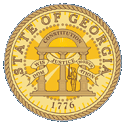Deal announces $75 million in state transit awards
Gov. Nathan Deal, joined by State Road & Tollway Authority (SRTA) Executive Director Chris Tomlinson, today announced 11 transit projects that will receive a total of $75 million in state funding through the GO! Transit Capital Program. The program, created and administered by SRTA, aims to address capital-related public transportation needs throughout the state.
“Today marks the first time that Georgia has made this type of significant investment for transit systems statewide," said Deal. "These 11 projects represent major milestones in transportation infrastructure and demonstrate our commitment to improving mobility in every corner of the state. Once completed, these projects will address traffic congestion and support economic development through increased access to jobs. I want to thank SRTA board members, Executive Director Chris Tomlinson and members of the General Assembly for their leadership in ensuring our critical transportation needs are addressed.”
During the 2015 legislative session, the Georgia General Assembly designated $75 million in general obligation bonds for the program and identified SRTA to administer the funds. Existing public transportation operators, as well as local, regional and state government units were eligible to apply for the GO! Transit Capital Program.
“The GO! Transit program was created to give a boost to Georgia’s public transportation systems, and the projects that we are awarding will go a long way towards improving transit in communities throughout Georgia,” said Director Tomlinson. “This type of funding is critical to helping us address Georgia’s transportation needs, from mobility and congestion relief to safety.”
SRTA began taking award applications in October 2015. Applicants went through a review and selection process by SRTA staff with input from transit stakeholders. Awards were based on a set of criteria developed to assess a project’s ability to meet major statewide transportation goals, including improving safety and increasing mobility.
Listed below are the GO! Transit Capital Program award recipients. More information about the program and projects can be found on SRTA’s website.
Albany Transit System
Multimodal Center
Constructs a new state-of-the-art transfer facility that improves the customer experience and allows for future expansion of the system. The facility will allow for safer separation of bus and pedestrian traffic, improve coordination with the regional rural public transportation system, and provide innovative features such as a computer lab with free public Wi-Fi and on-site fare purchases.
Athens-Clarke County
Hybrid-Electric Buses
Replaces one-third (10 buses) of the Athens-Clarke diesel powered bus fleet with new hybrid-electric buses. The new buses will reduce long-term maintenance costs and decrease emissions.
Atlanta Regional Commission
Bus Stop Amenities
Upgrades bus stop signage throughout Cobb, DeKalb and Fulton counties. The new signs will have a consistent design for all transit systems and improved information for customers. Bus shelters, benches and sidewalk upgrades will also be provided at select stop locations to enhance riders’ experience and improve access for the elderly and disabled.
Chatham Area Transit Authority (CAT)
New Buses
Replaces one-third (26 buses) of the CAT bus fleet. Newer buses will reduce maintenance costs and enhance the customer experience by improving reliability and on-time performance.
Cobb County
Bus Expansion – Route 10X
Purchases 12 buses needed to operate a new Cobb Community Transit Route 10X, which will provide express service from Town Center to the Midtown MARTA station with limited stops at major locations such as Kennesaw State University. This route will improve transit options along the I-75 corridor by reducing transfers among existing routes and decreasing travel times.
Cobb County
Bus Expansion – Cumberland Circulator
Purchases six buses to create two new circulator routes within the Cumberland Community Improvement District. The circulators will improve transit access to jobs and key community resources such as Sun Trust Park, Cumberland Mall and the Cobb Galleria.
Gwinnett County
New Buses
Purchases 20 new buses for Gwinnett County Transit, which will enable the service to run more efficiently, improving reliability and cost-effectiveness.
Gwinnett County
Sugarloaf Mills Park & Ride Upgrade
Redesigns and upgrades the Sugarloaf Mills Park-and-Ride lot to improve bus access and passenger amenities. Customers will have additional shelters and the ability to purchase fares on-site. Buses will be able to take a more direct route to the I-85 Express Lanes, decreasing travel times and improving reliability.
Henry County
Jonesboro Road Park & Ride
Constructs a new park-and-ride lot near the intersection of Jonesboro Road and I-75 in Henry County. The lot will provide access to the new I-75 South Metro Express Lane for vanpools and Xpress buses, improving connectivity and reliability.
MARTA
Audio Visual Information System
Upgrades public address and electronic passenger information system at MARTA’s 38 rail stations with enhanced audio and video displays, expanding transit user access to communications and emergency information. Enhanced features include multi-lingual signage, automated messaging that more quickly provides communications to riders, and the display of bus schedule and arrival time information for connecting transit systems such as transfers from rail to bus or to other regional transit operators.
University of Georgia
Electric Buses
Replaces one-third of the existing diesel bus fleet (19 buses) with new fully-electric buses, reducing greenhouse gas emissions and providing a quieter ride for transit users. The buses will also reduce maintenance costs, improving the cost-effectiveness of the system.
